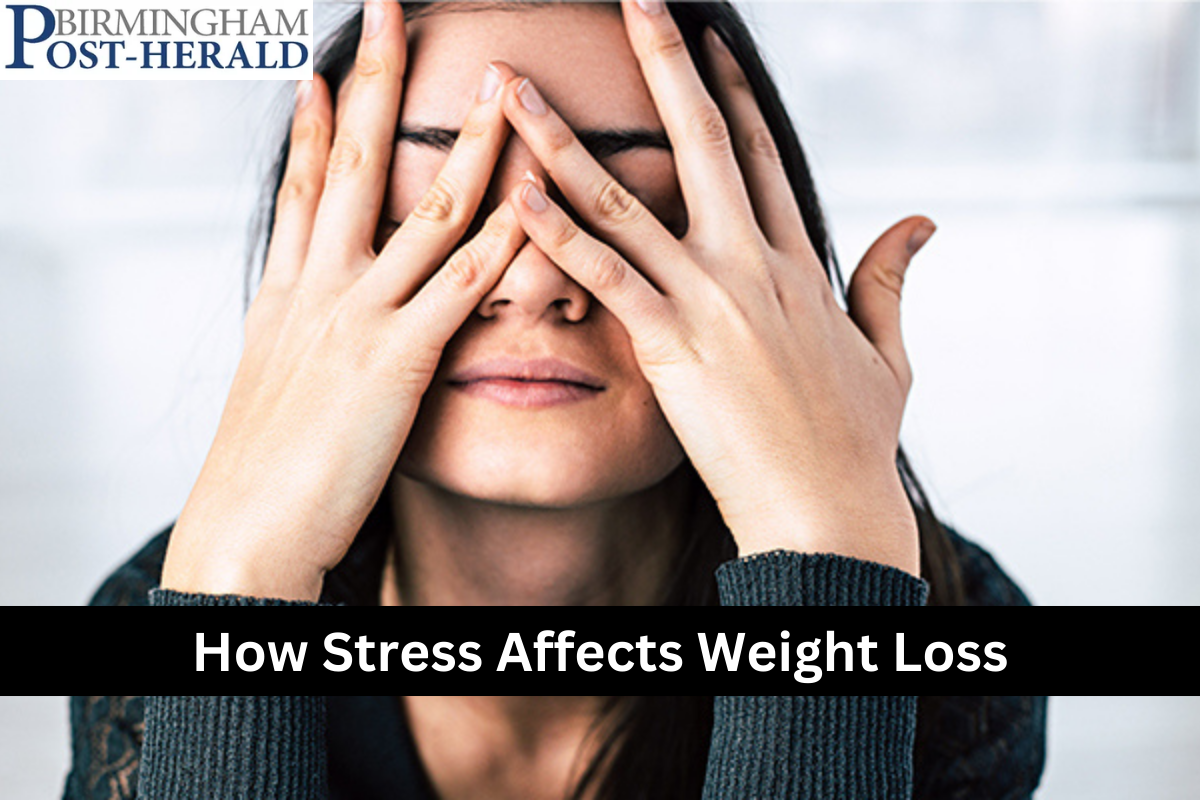How Stress Affects Weight Loss :- In the never-ending quest for weight loss, people frequently focus on diet and exercise while ignoring a critical component that can have a substantial impact on their efforts: stress. Stress is a normal part of everyday life, and it has effects on the body that go far beyond mental health. Understanding the complicated link between stress and weight loss is important for people who want to reach and keep a healthy weight.
How Stress Affects Weight Loss

1. The Physiology of Stress:
- The body goes through a series of physiological reactions in response to stress, the most important of which is the release of stress hormones like cortisol and adrenaline. As a result of their evolutionary function, these hormones are responsible for preparing the body for the “fight or flight” response.
- Nevertheless, when these responses are triggered in the setting of chronic stress, they have the potential to bring about negative consequences on a variety of body systems, including the metabolism.
2. Impact on Appetite and Cravings:
- The influence that stress has on eating behavior is one of the more recognized effects of stress. The experience of stress can cause certain individuals to experience an increase in hunger as well as desires for meals that are high in calories, sugar, and fat.
- Emotional or stress eating is a common term used to describe an eating disorder. There is a possibility that these comfort foods will bring a momentary sensation of relaxation; nevertheless, in the long run, they may be detrimental to efforts to lose weight.
3. Cortisol and Fat Storage:
- Frequently referred to as the “stress hormone,” cortisol is an essential component in the process of regulating metabolism and maintaining energy equilibrium. There is a correlation between elevated cortisol levels and increased fat storage, particularly in the abdominal region.
- This is especially true when the duration of the cortisol levels is prolonged. A number of health hazards, such as cardiovascular illnesses and insulin resistance, have been associated with visceral fat, which is the fat that is found in the abdominal cavity.
4. Disruption of Hormonal Balance:
- The delicate balance of hormones that regulate hunger and metabolism can be thrown off by chronic stress, which can have damaging effects. It is possible that the hormone leptin, which is responsible for signaling satiety, would become less effective, which will result in excessive eating.
- Simultaneously, the hormone ghrelin, which is responsible for stimulating hunger, may grow more potent, which will make it even more difficult to maintain a balanced eating pattern.
Also See :- In Season: Fresh Ginger Can Help You Lose Weight
5. Influence on Physical Activity:
- A person’s degree of physical activity can also be affected by stress. There are some people who are able to deal with stress by engaging in strenuous physical activity; nevertheless, there are other people who may experience exhaustion and a lack of drive, which can lead to a lifestyle that is more sedentary.
- It is possible for weight loss efforts to be hampered by decreased physical activity, which can also contribute to the buildup of excess body fat.
6. Psychological Factors:
- Additionally to the physiological factors, stress can also establish psychological barriers that make it difficult to lose weight.
- The feelings of being overwhelmed, worry, and despair that are linked with chronic stress may lead to disordered eating practices, which further complicates the process of achieving a healthy weight.
7. Sleep Disruption:
- There is a close relationship between stress and sleep, and disturbances in either can make the other more difficult to manage. An insufficient amount of quality sleep can cause disruptions in the circadian rhythms of the body, which can lead to weight gain.
- Sleep deprivation may also cause changes in hormones that are associated with appetite and satiety, which can result in an increase in the amount of calories consumed.
8. Strategies for Managing Stress and Facilitating Weight Loss:
- Beginning with the realization that stress has an effect on weight reduction is the first step towards putting into action techniques that are successful. The physiological responses that are connected with stress can be mitigated by incorporating stress management practices such as mindfulness, meditation, and deep breathing exercises into one’s routine.
- In addition, a holistic approach to weight loss can be aided by the establishment of a consistent exercise regimen, the improvement of sleep hygiene, and the cultivation of a social network that is supportive.
Conclusion:
It’s clear that if you want to lose weight and deal with worry at the same time, you need to work on both your physical and mental health. By learning how stress affects the body and using effective stress management techniques, people can deal with the problems that stress causes and start losing weight in a healthy way that will last. Using these ideas in weight loss programmer can make them more thorough and tailored to each person, giving them the tools they need to reach and keep their ideal weight.
If you like this Article How Stress Affects Weight Loss please Share With Your Friends And Family Members.
